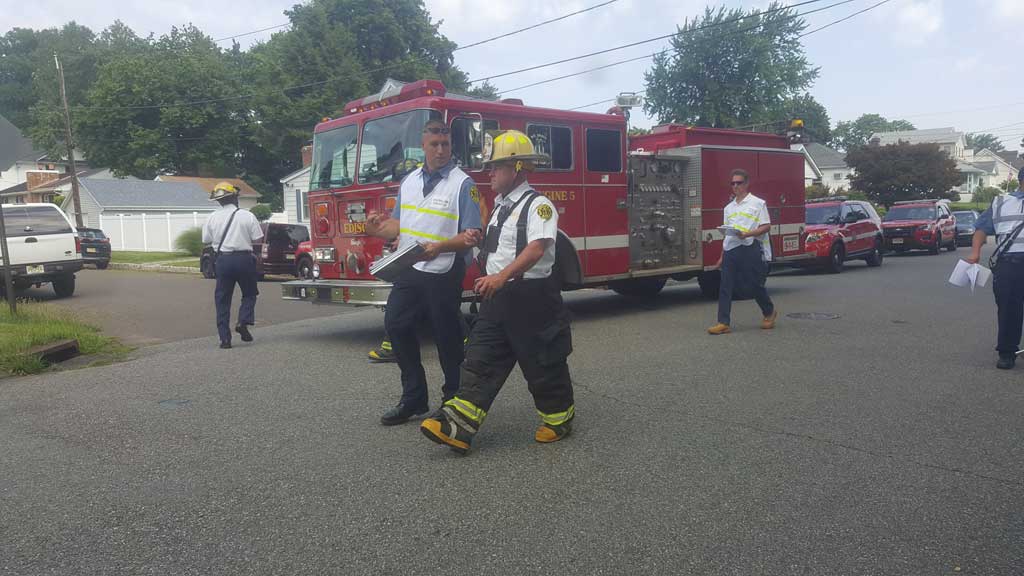[youtube https://www.youtube.com/watch?v=eYgzc6MzVS0]
EDISON — The Edison Fire Department responds to 400 to 500 gas leak calls a month.
Fire Chief Brian Latham said many of the calls are minor — someone left their stove on or a contractor accidentally nicked a pipeline.
Nonetheless, Latham said routine gas leak drills/exercises like the one on July 20 are necessary to keep emergency personnel on their toes
The simulated gas leak exercise was presented by the Public Service Electric and Gas Company (PSE&G) on Lake View Boulevard.
Members of the Edison Fire, Police, Emergency Medical Services, Office of Emergency Management, Health Department and PSE&G members participated in the exercise, which lasted about an hour.
“PSE&G performs simulated gas leak exercises to test and enhance communication protocols and logistics,” said Joe Forline, vice president of gas operations. “Simulating a gas leak emergency for our crews and Edison first responders enables us to prepare for worst case scenarios and learn from each other ensuring a coordinated response when it is not an exercise.”
Forline said PSE&G, which serves from Bergen County to Gloucester County, responds to about 200 gas leak calls a day.
“Some of [the calls] are minor and have no cause,” he said. “We always treat [each call] as a serious situation.”
Forline said 99.1 percent of the time; a skilled service technician will be at the location within an hour and assess the situation.
He said PSE&G began conducting drills last year in the communities they service.
“We held 12 last year and this is our second one this year,” Forline said. “We try to hold one in each of our counties.”
Latham said it’s important to hold drills and exercises.
“All the agencies need to work together so we are all in unison in mitigating the situation,” he said. “Anytime there is a report of a gas leak, the majority of the time the fire department is the first to arrive to the leak.”
The fire chief said the department has gas meters that the firemen can use to find out how bad the leak is and what the explosive range of the leak is.
“Of course we would then notify PSE&G and first responders depending on the severity of the situation,” he said.
Latham said the initial zone is called the hot zone, which spans 350 feet from the affected area.
“It depends on the amount of gas in the building, the size of the building and how far that explosion is going to expand,” he said.
Latham said if the gas leak is not contained, the leak may spread.
“[Gas] likes to follow drains into the piping and then it goes in all the structures,” he said. “Usually a one house problem is a whole block problem.”
Latham said along with training with outside agencies like PSE&G, the fire department internally holds monthly training in the firehouses.
“[Gas leaks are] one of the things covered on a monthly basis,” he said.
According to a recent study, about 40 percent of natural gas line damages involve lines cut because of errors by contractors, construction workers or residents.
Most of these incidents could be avoided with a simple call to 811 to request a mark out of underground pipes and cables.
Edison Mayor Thomas Lankey said the township’s number one priority is keeping the public safe.
“This exercise provides real-world training for first responders, allowing them to practice an effective and timely response with PSE&G in emergency situations,” he said. “It’s also an excellent opportunity to educate people about the importance of calling 811 before any digging project.”
Forline said if a homeowner is putting in a fence, a mailbox or simply planting a tree, it’s important to call 811.
If anyone smells an odor of gas, which Forline said smells like rotten eggs, call PSE&G at 1-800-880-7734 or call 911.

